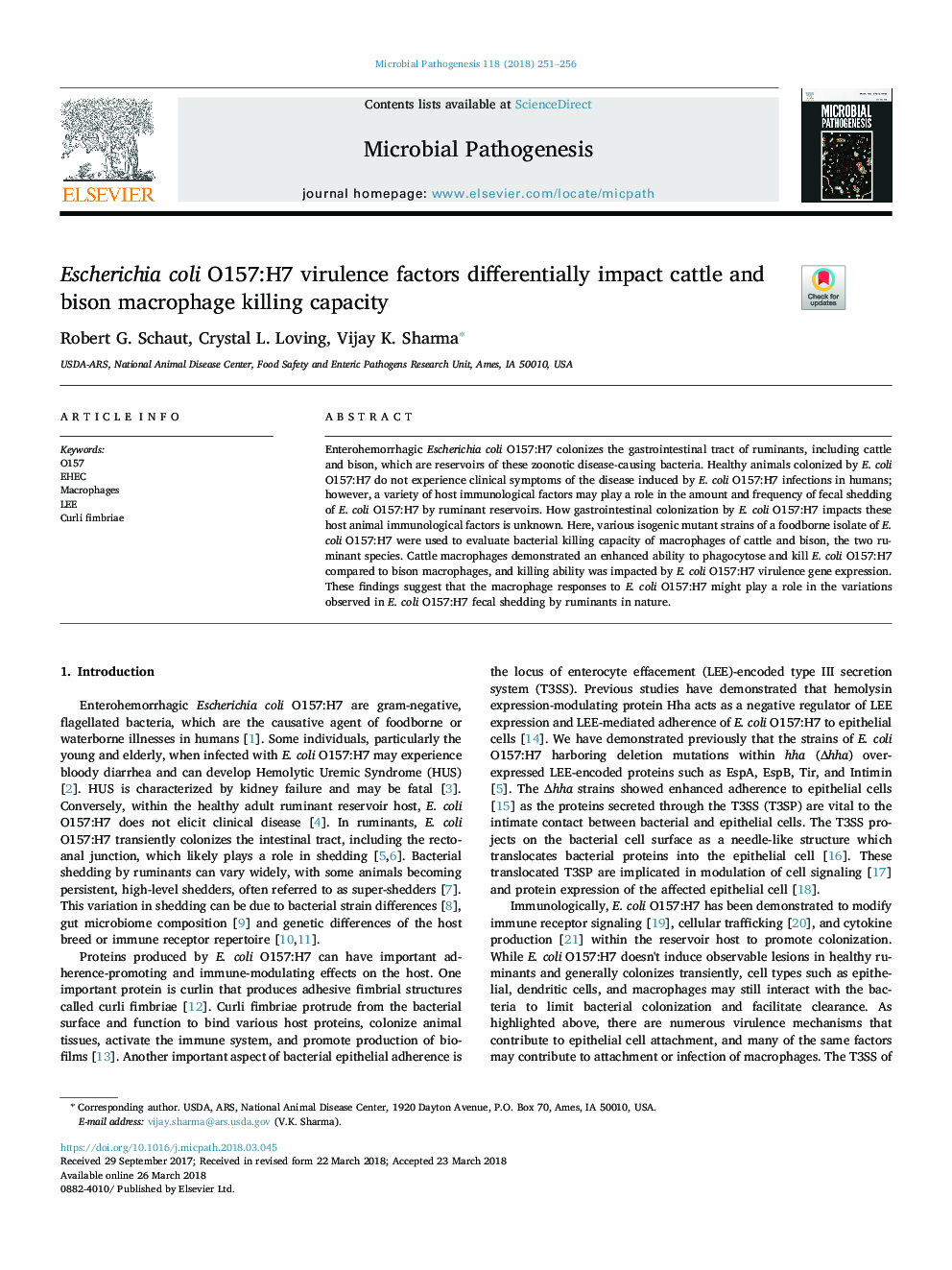| Article ID | Journal | Published Year | Pages | File Type |
|---|---|---|---|---|
| 8749574 | Microbial Pathogenesis | 2018 | 6 Pages |
Abstract
Enterohemorrhagic Escherichia coli O157:H7 colonizes the gastrointestinal tract of ruminants, including cattle and bison, which are reservoirs of these zoonotic disease-causing bacteria. Healthy animals colonized by E. coli O157:H7 do not experience clinical symptoms of the disease induced by E. coli O157:H7 infections in humans; however, a variety of host immunological factors may play a role in the amount and frequency of fecal shedding of E. coli O157:H7 by ruminant reservoirs. How gastrointestinal colonization by E. coli O157:H7 impacts these host animal immunological factors is unknown. Here, various isogenic mutant strains of a foodborne isolate of E. coli O157:H7 were used to evaluate bacterial killing capacity of macrophages of cattle and bison, the two ruminant species. Cattle macrophages demonstrated an enhanced ability to phagocytose and kill E. coli O157:H7 compared to bison macrophages, and killing ability was impacted by E. coli O157:H7 virulence gene expression. These findings suggest that the macrophage responses to E. coli O157:H7 might play a role in the variations observed in E. coli O157:H7 fecal shedding by ruminants in nature.
Keywords
Related Topics
Life Sciences
Immunology and Microbiology
Microbiology
Authors
Robert G. Schaut, Crystal L. Loving, Vijay K. Sharma,
